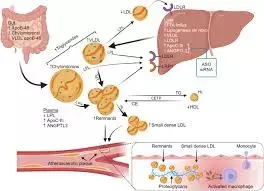- Home
- Medical news & Guidelines
- Anesthesiology
- Cardiology and CTVS
- Critical Care
- Dentistry
- Dermatology
- Diabetes and Endocrinology
- ENT
- Gastroenterology
- Medicine
- Nephrology
- Neurology
- Obstretics-Gynaecology
- Oncology
- Ophthalmology
- Orthopaedics
- Pediatrics-Neonatology
- Psychiatry
- Pulmonology
- Radiology
- Surgery
- Urology
- Laboratory Medicine
- Diet
- Nursing
- Paramedical
- Physiotherapy
- Health news
- Fact Check
- Bone Health Fact Check
- Brain Health Fact Check
- Cancer Related Fact Check
- Child Care Fact Check
- Dental and oral health fact check
- Diabetes and metabolic health fact check
- Diet and Nutrition Fact Check
- Eye and ENT Care Fact Check
- Fitness fact check
- Gut health fact check
- Heart health fact check
- Kidney health fact check
- Medical education fact check
- Men's health fact check
- Respiratory fact check
- Skin and hair care fact check
- Vaccine and Immunization fact check
- Women's health fact check
- AYUSH
- State News
- Andaman and Nicobar Islands
- Andhra Pradesh
- Arunachal Pradesh
- Assam
- Bihar
- Chandigarh
- Chattisgarh
- Dadra and Nagar Haveli
- Daman and Diu
- Delhi
- Goa
- Gujarat
- Haryana
- Himachal Pradesh
- Jammu & Kashmir
- Jharkhand
- Karnataka
- Kerala
- Ladakh
- Lakshadweep
- Madhya Pradesh
- Maharashtra
- Manipur
- Meghalaya
- Mizoram
- Nagaland
- Odisha
- Puducherry
- Punjab
- Rajasthan
- Sikkim
- Tamil Nadu
- Telangana
- Tripura
- Uttar Pradesh
- Uttrakhand
- West Bengal
- Medical Education
- Industry
Elevated Remnant Cholesterol tied to increased ASCVD events in Individuals With Diabetes: Study

Elevated Remnant Cholesterol tied to increased ASCVD events in Individuals With Diabetes suggests a study published in the Diabetes/Metabolism Research and Reviews.
Elevated remnant cholesterol (= the cholesterol carried in triglyceride-rich lipoproteins) is a causal risk factor for atherosclerotic cardiovascular disease (ASCVD) and is common in individuals with diabetes. They tested the hypothesis that ASCVD in individuals with diabetes can be partly attributed to elevated remnant cholesterol.
They included 3806 individuals with diabetes identified among 107,243 individuals from the Copenhagen General Population Study and used multivariable adjusted Poisson regression to estimate the fraction of ASCVD attributable to elevated remnant cholesterol. Elevated remnant cholesterol was defined as levels higher than those observed in individuals with non-high-density lipoprotein (non-HDL) cholesterol < 2.6 mmol/L (100 mg/dL), the European guideline goal. Results were replicated in the UK Biobank. Results: During 15 years of follow-up, 498 patients were diagnosed with ASCVD, 172 with peripheral artery disease, 185 with myocardial infarction and 195 with ischaemic stroke. In individuals with non-HDL cholesterol < 2.6 mmol/L (100 mg/dL) and in all individuals with diabetes, median remnant cholesterol levels were 0.5 mmol/L (20 mg/dL) and 0.8 mmol/L (31 mg/dL).
The fraction of events attributable to elevated remnant cholesterol was 19% (95% confidence interval: 10%-28%) for ASCVD, 21% (5%-37%) for peripheral artery disease, 24% (10%-37%) for myocardial infarction and 17% (1%-31%) for ischaemic stroke; in the UK Biobank, corresponding values were 16% (9%-22%), 25% (12%-36%), 17% (8%-25%) and 7% (0%-19%), respectively. One in five ASCVD events in individuals with diabetes can be attributed to elevated remnant cholesterol. It remains to be determined in clinical trials if remnant cholesterol-lowering therapy may prevent ASCVD.
Reference:
Wadström BN, Pedersen KM, Wulff AB, Nordestgaard BG. One in Five Atherosclerotic Cardiovascular Disease Events in Individuals With Diabetes Attributed to Elevated Remnant Cholesterol. Diabetes Metab Res Rev. 2024 Nov;40(8):e70005. doi: 10.1002/dmrr.70005. PMID: 39550770.
Dr. Shravani Dali has completed her BDS from Pravara institute of medical sciences, loni. Following which she extensively worked in the healthcare sector for 2+ years. She has been actively involved in writing blogs in field of health and wellness. Currently she is pursuing her Masters of public health-health administration from Tata institute of social sciences. She can be contacted at editorial@medicaldialogues.in.
Dr Kamal Kant Kohli-MBBS, DTCD- a chest specialist with more than 30 years of practice and a flair for writing clinical articles, Dr Kamal Kant Kohli joined Medical Dialogues as a Chief Editor of Medical News. Besides writing articles, as an editor, he proofreads and verifies all the medical content published on Medical Dialogues including those coming from journals, studies,medical conferences,guidelines etc. Email: drkohli@medicaldialogues.in. Contact no. 011-43720751


